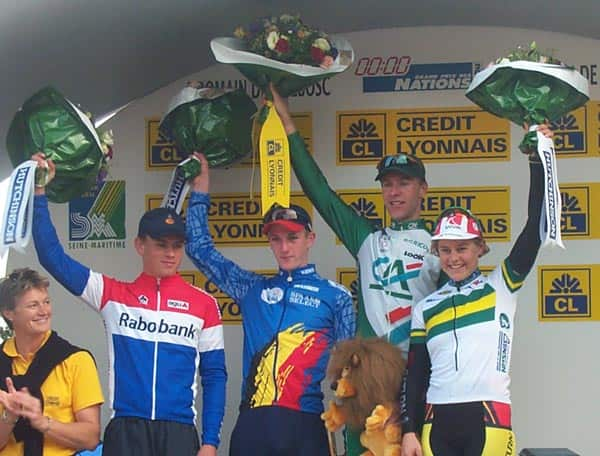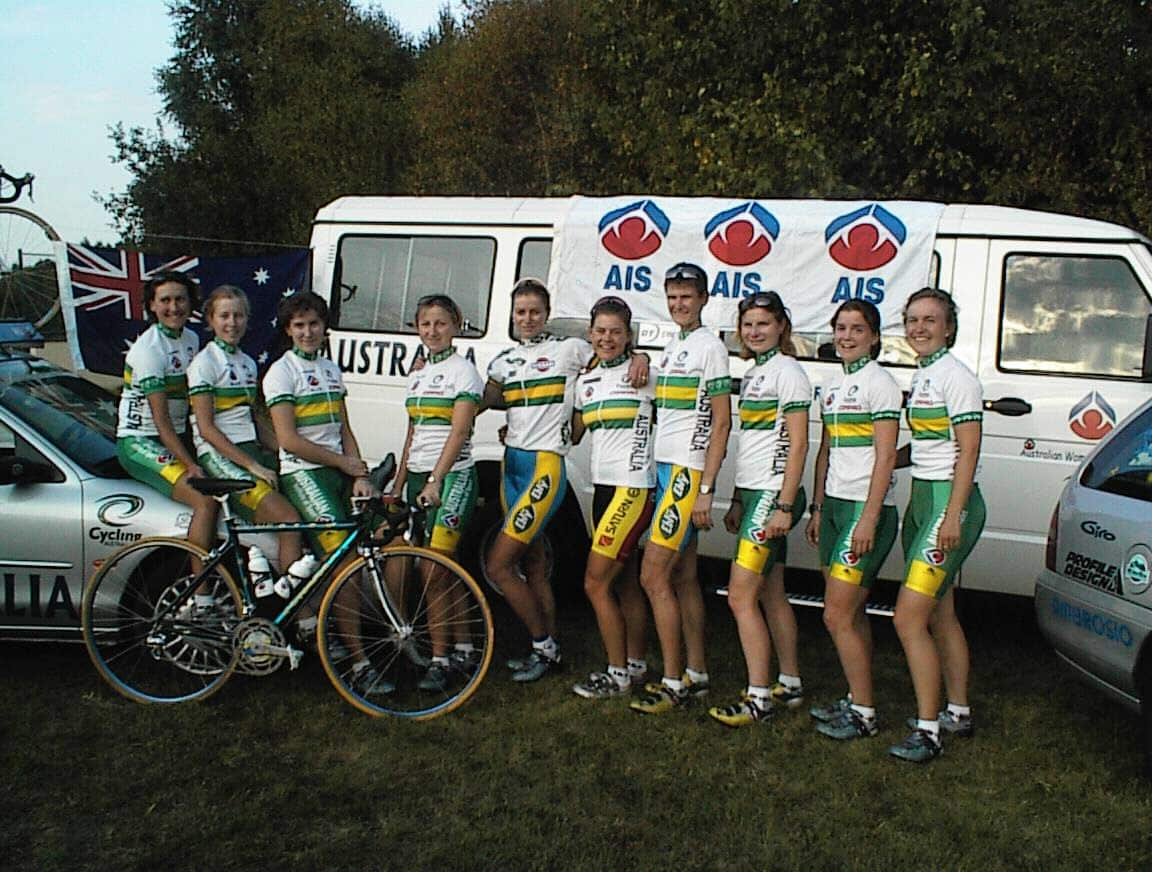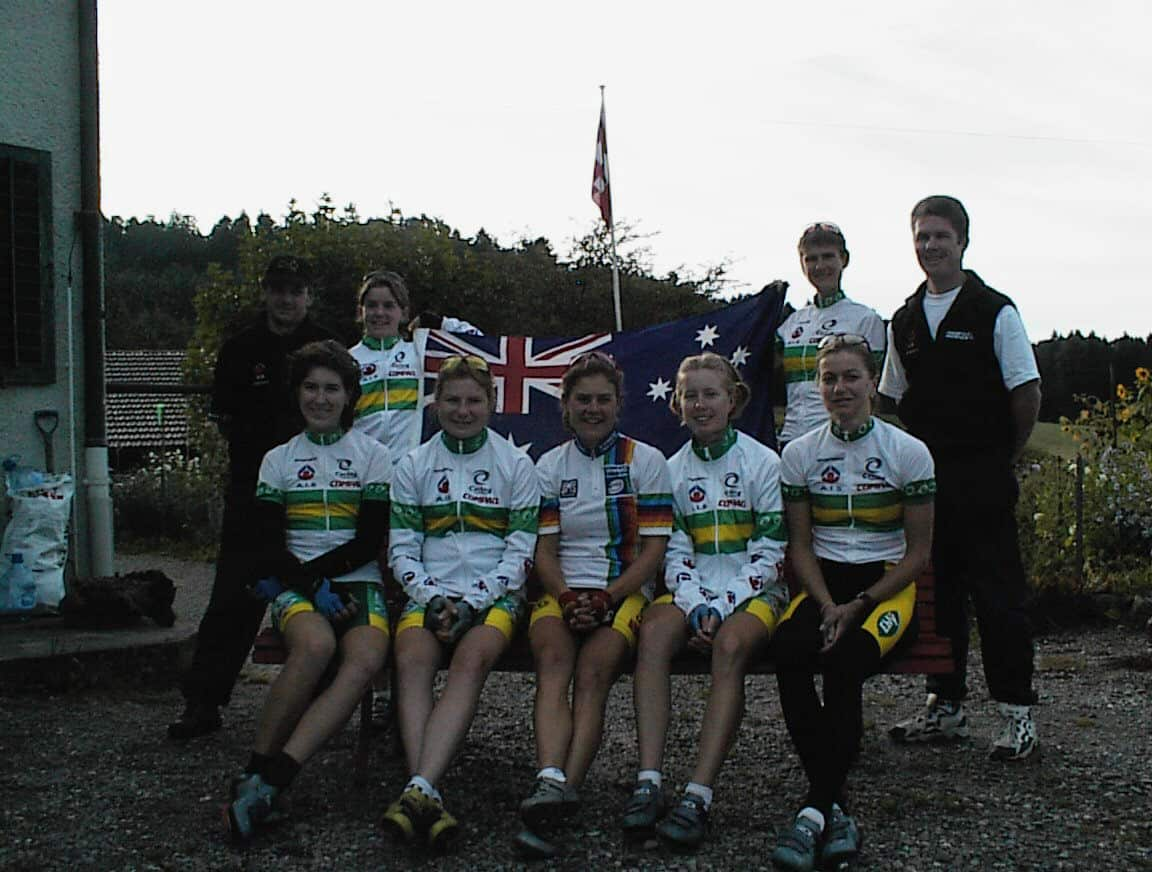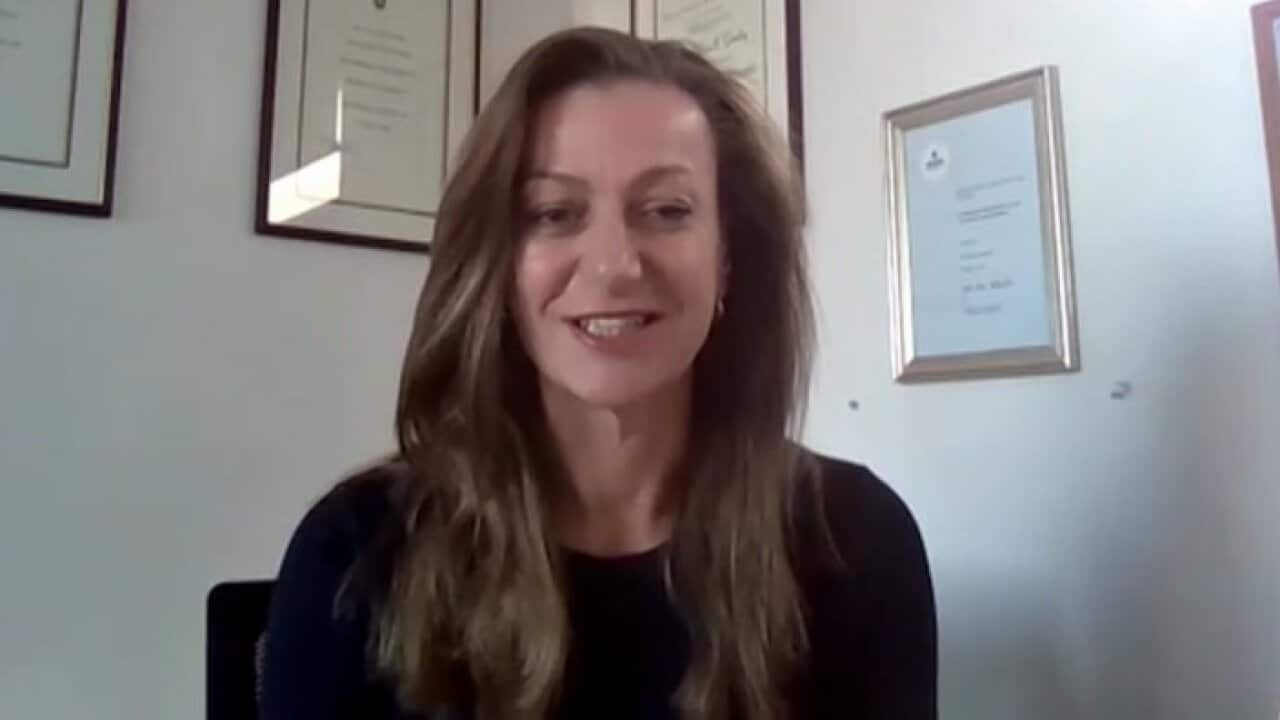Australian cycling great Anna Wilson won the World Cup, set the world hour record and forged an impressive career while becoming a practicing lawyer.
Wilson talked to SBS Sport about how the experience of racing, mostly in the 90s and early 00s differs from the current day but also how cycling is still very much the same beast if she was to be starting the sport today.
“I don’t see it as so very different in a lot of ways,” said Wilson, “bike racing is bike racing. Obviously, the bikes have improved, the technology has improved, there are more teams now and more opportunity.
“But if you can race a bike, you can race a bike and you can learn adapt to all sorts of different circumstances. I could be as successful in this era as mine, that ‘bike brain’ is transferrable to this era.”

“When you’d go over to Europe to race it was often just in exchange for food and accommodation, your bike and your clothing,” said Wilson, “so there wasn’t any money involved unless you could win some prize money and the prize money was pretty meagre.
“That’s certainly been a great development that there are more paid spots open. There’s obviously more to be done to close the gap with the men’s salaries.”
The 50-year-old sees a lot of opportunity for the women’s peloton these days, speaking ahead of the inaugural Tour de France Femmes about how that race and different ways of reaching fans has opened things up for women’s cycling.
“I think that technology has really opened up the way that racing and teams can advertised and then you can command enough revenue to pay riders properly,” said Wilson. “Everything is continuing to evolve and I’m really looking forward to seeing the women’s Tour de France on SBS.
“It’s terrific to be able to turn on the TV and see women’s racing, that would never have been possible in my day. We’re now in the age of the internet, certainly much more so than in the 90s and it’s a lot more everyday now.”
Wilson’s own racing history in France didn’t include a race called the Tour de France, but did feature spin-off races in the Grand Boucle International and Tour de l’Aude which were tough stage races in the same regions, with the Grand Boucle having to change its name to that after a dispute with Tour de France organisers. Wilson took stage victories in both and again the common denominator between those times and now was the difficulty of the racing, in this case magnified by poor accommodation and recovery facilities.
“My experience of racing in France is that it was always really tough,” said Wilson. “(Wout) Van Aert said something the other day about how he’s never seen a flat piece of asphalt in France and I think that’s about the way it is. You might get flat roads in Belgium or Holland, but there’s not much in France.
“I remember doing a couple of the World Cup days in France and the extreme heat of some of those days… that really sapping heat. When we were racing, it wasn’t any of the 5-star hotels, it was a lot of cheap motels without air-conditioning. It was a real challenge to recover when you’d been racing in 35-40 degree heat. You’d be left to suffer in the heat and try to sleep through it.”
The World Cup races were where Wilson took arguably her biggest triumph, winning the overall World Cup in 1999 in a tough battle that went all the way to the final race of the season.
“It was very special, very hard-fought,” said Wilson of her triumph. “I think there were nine rounds of the World Cup that year, my main rival was Hannah Kupfernagel of Germany and it was a bit of a seesaw battle on who would take out the overall.
“I didn’t get to go to all the World Cup races that year as I had responsibilities racing as a professional with the Saturn team, I think I missed Fleche Wallonne, so I had ground to make up in the second half of the season.
“I raced the last round of the World Cup with the national team and that was a great experience of the national team coming in to support me and being able to pull off the win and secure the overall title. It was great to be able to share that with the national team.”

“I did a law degree, that was from 1990-95, then I went to the AIS and trained for the Olympics, that was ’96,” said Wilson. “Then in ’97 I decided to move back and complete my articles which you need to do to practise as a fully-qualified lawyer.
“So, while back here I decided to set myself another goal of beating the hour record. That worked with not having to do the long hours of endurance training and I could combine it with working full-time.”
A from the time reported that Wilson couldn’t stand for 30 minutes after the effort, Wilson revealing that she would have quit the event if not for the crowd willing her on.
“After the 2000 Olympics they were opening the velodrome down in Melbourne, the Vodafone arena as it was then known,” said Wilson. “They asked me as an opening event if I’d like a shot at the hour record again under the new rules.
“That presented a new opportunity as it set the record back about 20 years to the 80s before the new aerodynamic tech came into the sport. So, it was more attainable. Even though I didn’t ride as far as the previous record, I set a new world record.”
Olympic appearances, world hour records and more race victories than survive to this day in the incomplete history books of the era were just a few of the highlights of Wilson’s storied career, which came to an end aged 30 in 2002.

"I went back and worked at a law firm and I found that quite hard at times, I now work for myself as a barrister at the Victorian Bar. I enjoy that, the independence, the adrenaline of appearing in court. I find a lot of similarities with what I do now to sport. The long preparation for one day in court or one day of the race.”
Her history with cycling, long list of achievements and achievements post-cycling see Wilson in an interesting position to appraise the sport, both within the cycling circles and without being beholden to any stakeholders within the industry. She sees a lot of positives with how accessible cycling is these days and that is the key to driving interest in the sport, and particularly the women’s side, in the future.
“SBS has done a great job pioneering cycling on TV and cycling in Australia going back decades,” said Wilson. “Now it’s really starting to see an increase in the broadcasting of women’s racing. I think that it’s key to the development of the sport that you turn on the TV and it’s there.”
This article is part of a series of interview with Australian trailblazers in women's cycling click through on the links below for an interview with Kathy Watt that focuses on some of her incredible anecdotes from past editions of the previous women's Tour de France and an interview with Tracey Gaudry that looks at her racing career and her role in the UCI in helping develop women's cycling to the position it is in today.












